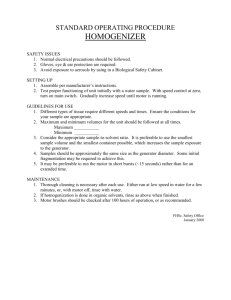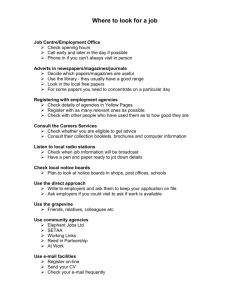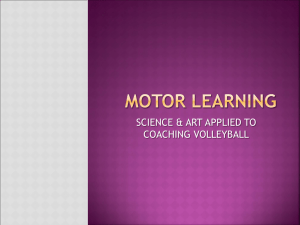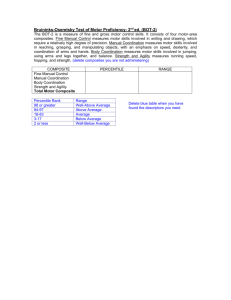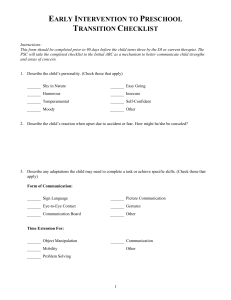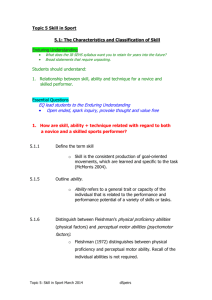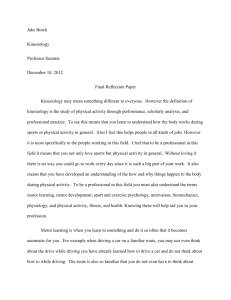ESS 100 – Motor Behavior & Sport Pedagogy
advertisement
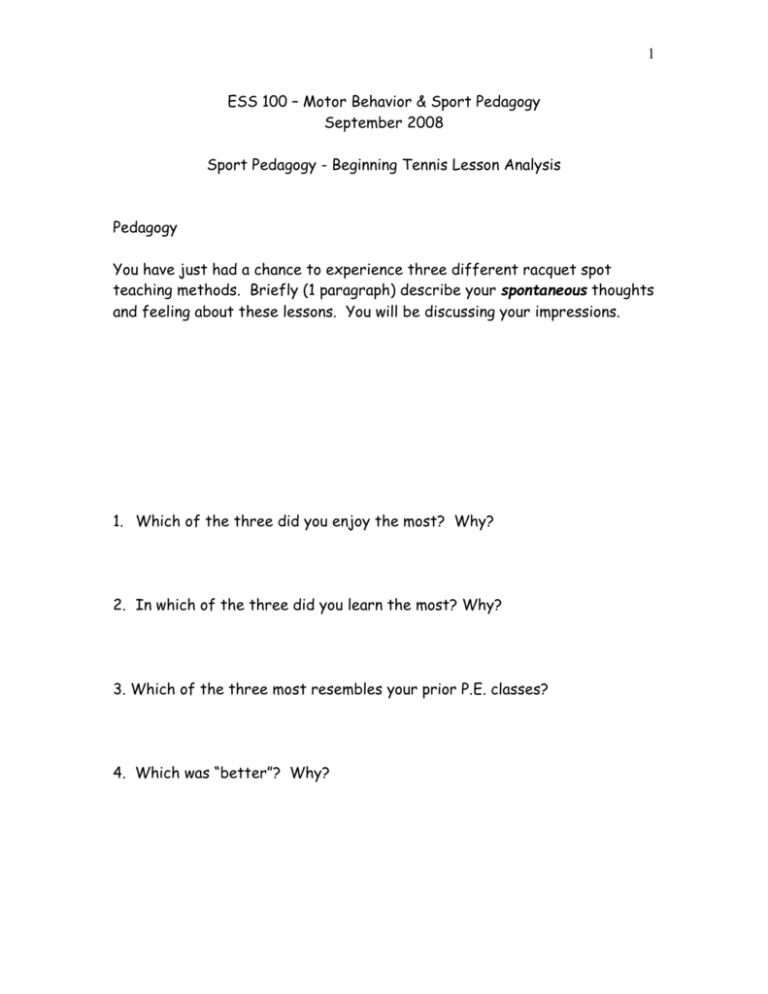
1 ESS 100 – Motor Behavior & Sport Pedagogy September 2008 Sport Pedagogy - Beginning Tennis Lesson Analysis Pedagogy You have just had a chance to experience three different racquet spot teaching methods. Briefly (1 paragraph) describe your spontaneous thoughts and feeling about these lessons. You will be discussing your impressions. 1. Which of the three did you enjoy the most? Why? 2. In which of the three did you learn the most? Why? 3. Which of the three most resembles your prior P.E. classes? 4. Which was “better”? Why? 2 Reflect on your own “pedagogical”/ subjective experiences: 1) Who stands out in your memory as the best instructor/P.E. teacher or coach you have ever had? 2) What qualities did this teacher or coach have that made him or her effective? 3) Who stands out in your memory as the worst teacher or coach you’ve ever had? 4) What weaknesses did this teacher or coach posses, or what qualities did he or she lack, that made him or her ineffective? 5) What do you think are the most important traits that a teacher of coach should posses? 3 Now analyze all three methods with respect to these factors: Nine Important Factors to Consider in Effective Pedagogy (Adapted from Hoffman & Harris, 2000) Traditional Appropriate Practice Active Learning Time Optimal Challenge (not in text) Class Management & Discipline Accountability Specific Feedback Hidden Curriculum Equity Addressing Individual Needs “Rally” Program Games Approach (TGFU) 4 Definitions Sport Pedagogy: The art or science of teaching sport (or physical activity) . Pedagogy focuses on teaching behaviors and producing learning in students. Motor Behavior Motor Learning: A relatively permanent change in the performance of a motor skill resulting from practice or experience. Most motor skill tasks usually involve perception: hence perceptual-motor skills. 60’s – type and amount of feedback, massed vs. distributed practice. Motor Control: How the nervous system controls the muscular system to produce controlled movement. Also how the underlying cognitive processes are organized and used to control skilled movement. Related subdisciplines are: neuropsychology, cognitive psychology, neurophysiology, biomechanics and computer science Motor Development: Aspects of motor skill performance that are a result of heredity rather than learning. Analyzing the developmental patterns associated with motor skill performance. At what age can children begin to learn sport skills? Can this child skip, jump, throw – change in throwing patterns over growth. How does hand-eye coordination develop in children. Always been a special area within Developmental Psychology. Our related topic in this module is long Term Athlete Development plans (LTAD).


